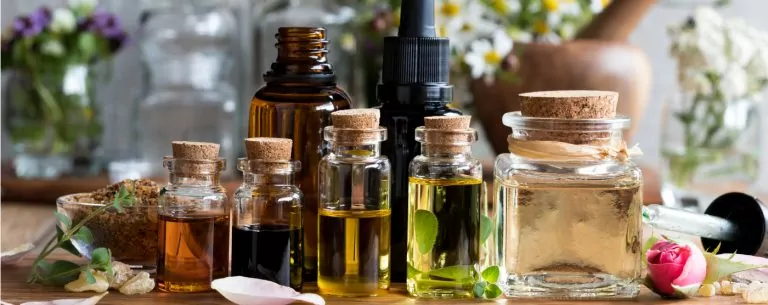Blog

7 Tips to Boost Your Immune System
There is still so much unknown about the coronavirus, but having a healthy, functioning immune system will always help reduce the effects of the virus if contracted and could be helpful in the prevention of even contracting the virus at all. Here are a few tips on how to boost your immune system naturally:
Nutrition
Vitamin C is arguably the most essential nutrient for immune function. It produces white blood cells (the first line of defense against viruses and infections) and gives an overall boost to your body’s immune system. While oranges and other citrus fruits are most commonly associated with vitamin C, several surprising foods are top sources of this essential vitamin.
Sweet potato, butternut squash, mango, papaya, pineapple—all orange, yellow, and red fruits and veggies will fulfill your daily quota of Vitamin C. A cup of chopped red bell pepper contains nearly three times more vitamin C than an orange. Broccoli is another winner—just a half cup of cooked broccoli will fulfill 84% of your recommended dietary intake (RDI) of vitamin C. Chestnuts, chili peppers, and kiwi are also good sources.
Aromatherapy
Aromatherapists have used Eucalyptus oil for hundreds of years to treat respiratory problems, but its medicinal uses have been gaining more attention recently in conventional medicine—so much so that you’ll find it in many of the over-the-counter medication you likely already have in your home.
Eucalyptus oil is a bronchial dilator (increases airflow to the lungs) and is thus used for treating everything from cough, cold, runny nose and sore throat to asthma, nasal congestion, sinusitis and bronchitis. “Its main component is 1,8-cineole, an expectorant and anticatarrhal that reduces mucus production,” explains Gina Flores, Certified Clinical Aromatherapist and instructor in our Continuing Education program at Swedish Institute. “It has amazing anti-bacterial & anti-viral actions, as well as antiseptic and stimulant properties.”
Laurel is another powerful antiseptic aid that Gina recommends for respiratory illnesses due to its high amounts of 1,8 cineole—especially for colds with catarrh and chronic bronchitis.
Massage Therapy
Clinical studies have indicated that regular massage not only helps alleviate pain and stress but also increases the activity level of the body’s white blood cells, which work to combat viruses.
“Massage therapy has been shown to naturally increase the immune system’s cytotoxic capacity (the activity level of the body’s natural “killer cells”) and decrease the number of T-cells, which improves the body’s immune functioning overall,” explains Ericka Clinton, Dean of Massage Therapy at Swedish Institute. Studies out of Cedars-Sinai* have shown regular massage therapy sessions to have a direct impact on the body’s immune markers — such as increased levels of lymphocyte (one of the three subsets of white blood cells in the immune system that play a significant role in defending the body from disease), as well as significantly improved function of NK-cells, which provide rapid responses to viral-infected cells.
Cryotherapy
From cold-water immersion to frigid air exposure, cryotherapy has been around in one form or another for ages—from the Roman frigidaria to modern-day ice baths. But sitting in a tub of water chilled to 50° isn’t exactly pleasant for most people.
Enter cryotherapy. Cryotherapy involves short exposure to extreme cold via a cryochamber—a human-sized tank filled with liquid nitrogen-cooled air. You sit or stand for 2-3 minutes as the temperature plummets as low as -300°F. This sudden blast of intense chill creates a small amount of stress, which keeps your cells alert. It elicits an adaptive response and activates white cells. Your bolstered immune system can then fight off viruses and disease factors.
Exercise
A regular exercise routine helps keep your immune system functioning at top levels. Exercise increases blood flow and circulation of immune cells. It also helps recruit highly specialized immune cells, such as natural killer cells and T cells, which find pathogens (like viruses) and wipe them out.** When you are physically active, you can help keep pathogens out of your lungs and airways, which minimizes the risk of illness.
If you are already doing regular exercise, keep it up! If not, you can start by walking a couple of times a week and then, over time, add in more cardio workouts and strength training.
Sleep
Getting sufficient sleep a night (7-8 hours) is vital, but so is sleep quality. Studies show that people who do not get quality sleep or enough sleep are more likely to get sick after being exposed to a virus, such as a common cold virus. Lack of sleep can also affect how fast you recover if you do get sick. When you sleep, your body produces protective cytokines that help fight off infectious diseases.
Break Unhealthy Habits
Smoking and drinking excessive amounts of alcohol can also contribute to a vulnerable immune system. Studies have shown that excessive alcohol consumption leads to compromised immune systems and an increase in respiratory infections. For example, alcohol damages the lungs, where the immune cells and fine hairs are supposed to clear pathogens out of our airways.*** According to the U.S. Dietary Guidelines for Americans, alcohol consumption should be up to one drink a day for women or two per day for men.
Similar to drinking alcohol, smoking damages the immune system and can weaken the body to fight off diseases. Quitting smoking improves circulation, increases oxygen levels, and lowers inflammation — all of which boosts your immune system, so it’s easier to fight off colds and other illnesses.
* Source: Mark Hyman Rapaport, Pamela Schettler, and Catherine Bresee. The Journal of Alternative and Complementary Medicine. October 2010, 16(10): 1079-1088. doi:10.1089/acm.2009.0634.
** Source: Does Exercise Boost Your Immune System?
*** Source: How Alcohol Can Affect Your Immune System
Recent Posts
- An Inside Look at Medical Assistant Classes
- Why are Sepsis and Staph Infections So Common in Hospitals?
- Mental Health, Nursing, and Education: Meet Swedish Institute Grad Omarr Savage
- From Student to Employer: Two Swedish Institute Grads Tell Their Success Stories
- Going Back to College After Time in the Workforce: A How-To Guide
